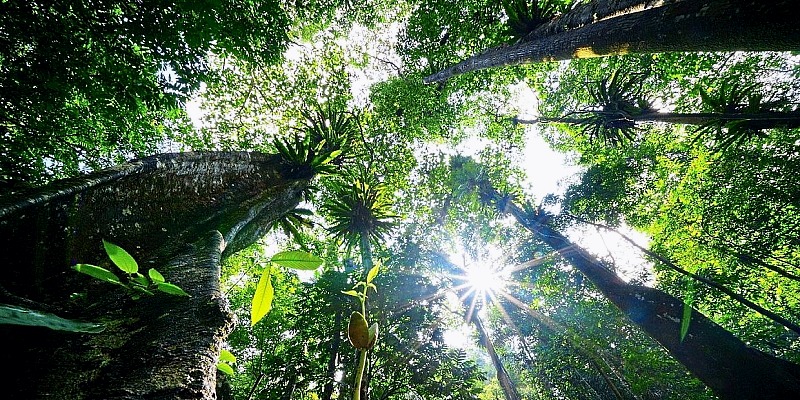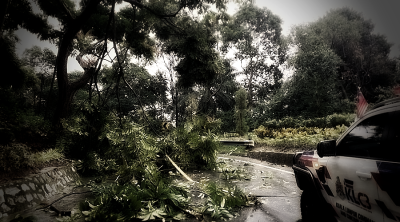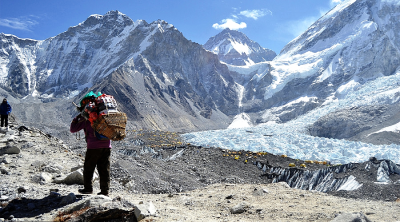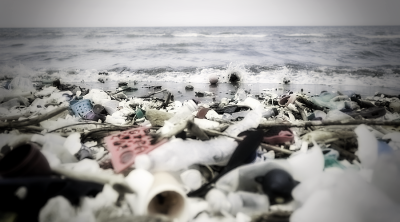We are a notoriously poor performer in the Climate Change Performance Index, and we ourselves are to blame for indiscriminate waste of energy.
Many were shocked by the images of the Baling landslide after a heavy downpour.
The many big and small floods in Klang Valley since the end of last year have served to warn Malaysians that we are no longer the one country blessed by God, as in the eyes of many outsiders.
We used to be a paradise on Earth, “with a warm climate cooled by rains whole year round, rich in natural resources and almost free of natural disasters.”
But in reality, we all know this is not true, any more!
Climate change and global warming are issues sidelined by Malaysians all the years because we think they have nothing much to do with us, and even if they do, that should be decades down the road and won’t affect this generation of Malaysians.
We never thought disasters could strike so fast! Last December, unseasonally high rainfall of 180 mm over a short span of two hours submerged thousands of vehicles and many more houses under water, and rendered Seri Duta 1 condominium a dangerous building.
Within one month, eight different states on Peninsular Malaysia were inundated, and the severity was unprecedented.
Experts at COP26 warned of extreme weather patterns before carbon neutrality is achieved in 2050 and that no countries could be spared.
Madagascar in Africa, currently experiencing a massive drought that has lasted four years, is the first country in the world to suffer severe food shortage as a result of climate change.
Climate experts predict that serious drought will befall India this year, triggering drastic fall in food production, and a global food crisis is nigh, complicated by the Russia-Ukraine war that has disrupted food exports.
The National Oceanic and Atmospheric Administration (NOAA) has announced that the United States will continue to experience prolonged drought, the most serious in 1,200 years! 60% of arable land will become dessicated, impacting food production.
Unusual 40°C temperatures have been registered in the state of Kansas, killing some 2,000 cows in a farm. Similarly, the annual wild fires are anticipated to return to California this summer, while water levels at major dams in the west are running low. Very soon, Americans will have to deal with the crisis of water shortage!

Henan province of China experienced a massive thunderstorm “unseen in a thousand years” last July, affecting 13.92 million people in 1,616 towns and villages with almost a million homes destroyed.
This year, many provinces in China have recorded the highest June temperatures in six decades and Henan, again, registered 43.3°C. But, that was late June, while traditionally July to September are the hottest months.
Since the Industrial Revolution of mid-18th century, coal has become the principal source of energy for power generation. As a consequence of unchecked carbon emissions, the surface temperature of the Earth has increased by 1.5°C.
Experts at COP26 warned that it is now the most critical time for us to save the planet, and that time is running out.
Even as we know how serious the situation is, carbon emissions hit a record 36.3 billion tons last year. The increased temperature due to excessive emissions will hasten the melting of polar ice, causing sea levels to rise. Many of our islands and coastal cities will eventually be submerged.
Although Malaysia is not yet a highly industrialised country, we release over 250 million tons of CO2 to the atmosphere every year, or a per capita emission of 7.6 tons, far above the global average of 4.7 tons.
Malaysia was ranked “very low” in the 2022 Climate Change Performance Index (CCPI) which assessed nations based on their performances in greenhouse gas emissions (40%), renewable energy development (20%), energy use (20%) and climate policy (20%).
We were also the worst performer in the whole of Asean, and shared the worst ratings in Asia with Taiwan, South Korea, Japan and several Middle Eastern states.
We have to admit that our government, local businesses and the general population of Malaysia are equally ignorant when it comes to environment protection. Many don’t even have the slightest environment awareness while the government pathetically lacks a sustainable clean energy policy.
Thanks to the government’s fuel subsidies and relatively low utility tariff, we are good at wasting energy: allowing our car engines to idle, turning on the air con to the max at home and in shopping malls, and pouring toxic wastes into our rivers in the middle of the night.
If we don’t reverse such wicked habits, we are only creating havoc for ourselves when Planet Earth strikes back.
ADVERTISEMENT
ADVERTISEMENT







































